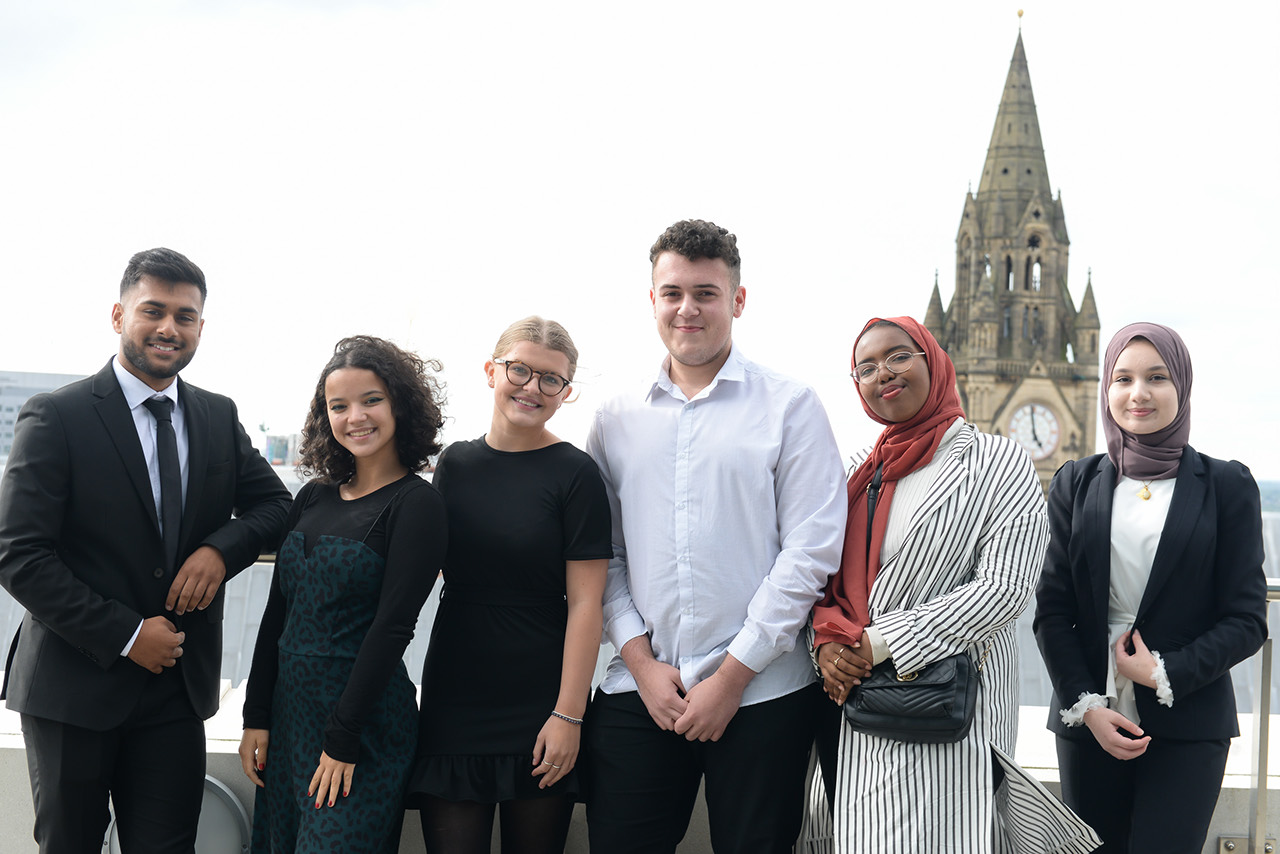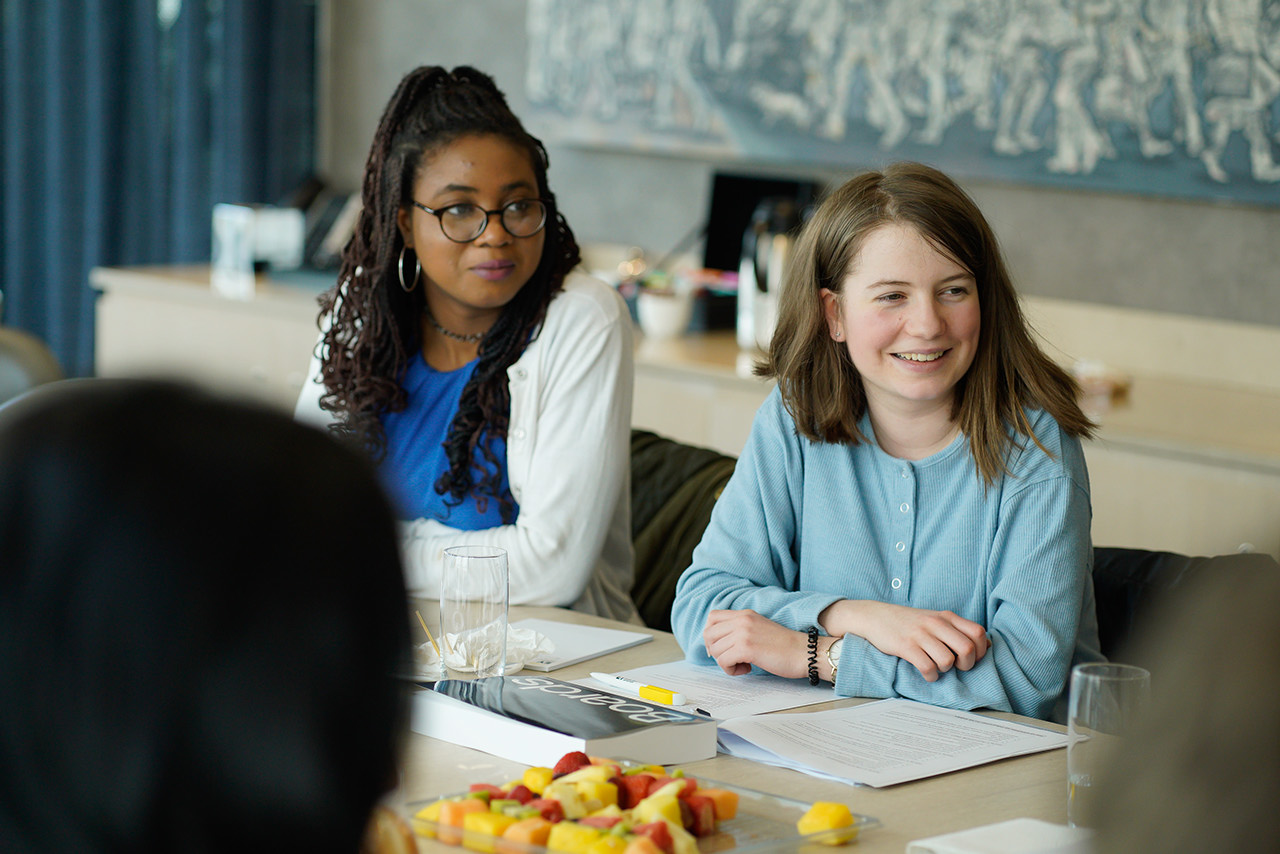The EY Foundation is a charitable company registered in England and Wales and Scotland with registered charity number 1157154 and SC045076. It is also a member firm of Ernst & Young Global Limited

When approaching the end of your school education and thinking about next steps, it’s not uncommon to have a lot of questions about what might be the right direction for you: further education, a job, or a combination of both?
With the interest in apprenticeships growing amongst young people, we wanted to share insights from someone with first-hand experience about why they decided to do an apprenticeship and what day-to-day life can be like within the role.
For National Apprenticeship Week, we interviewed Sobaan Mughal, who completed our Smart Futures Professional Services programme back in 2023 and is now an audit apprentice at EY working with organisations outside of the financial services industry. Sobaan began his apprenticeship in September 2024 after completing A Levels in maths, IT and psychology.
Learn about his career journey, what his daily role looks like, and the advice he’d give to someone considering an apprenticeship.
Why did you choose to do an apprenticeship?
There were a few reasons as to why I chose an apprenticeship over going to university. The main one would be that I wanted to start working as soon as I finished college, but since I didn’t want to neglect furthering my studies, an apprenticeship was the most suitable path.
I also wanted to gain a qualification that would allow me to have multiple opportunities in the future, hence why I landed on doing an audit apprenticeship – it allows me to work towards an ACA qualification.
Try and not limit the opportunities available to you.
What are the top 3 skills you’ve developed since starting your apprenticeship?
My attention to detail has improved since I have started this apprenticeship, which would mainly be due to the day-to-day work that I complete. My time management has also improved, as – particularly during busy season – there are a lot of deadlines to meet. I’ve gotten better at using Excel, too. In audit, most of the work is performed on there, so it helps to be able to use it more efficiently.
What does a typical week in your job look like?
Since it’s busy season at the moment, there’s a lot of being on client site and speaking to management. Otherwise, I would normally be in the office and working there. There are often daily catch-up calls with my team about our progress on tasks, and I’m always asking questions about things I’m unsure of.
Is there anything that surprised you about being an apprentice?
This might be industry-specific, but I didn’t expect to have to speak to the client about our queries – I’d always assumed that it was something for people who are more senior than me. However, it is one of the aspects I enjoy the most about the role.
I don’t imagine that I would be an apprentice without the help of the EY Foundation.
What piece of advice would you give to a young person thinking about doing an apprenticeship?
I would really recommend doing one, especially given the fact that more and more employers prefer people to have experience as well as industry specific qualifications. The main piece of advice I would give is to try and not limit the opportunities available to you. For example, even if you’re set on doing an apprenticeship, there’s still no harm in applying to university, or even exploring other routes. Simply because it gives a greater choice of opportunities to pursue.
How did the EY Foundation programme support you on your journey to becoming an apprentice?
I attended the Smart Futures programme just before going into Year 13, which I believe was a really important time to do so, as it is when we are told to start looking into university.
The programme gave me a crucial insight into what work life looks like, as well as shedding light onto the different apprenticeships available at EY. They also taught us skills that would allow us to be successful in the application processes for apprenticeships.
Overall, the programme greatly supported me in landing this role, we were even given mentors that we could learn from in terms of their professional career. I don’t imagine that I would be an apprentice without the help of the EY Foundation.


